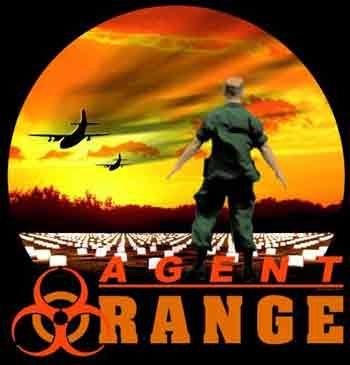
Publisher:
Bonnie King
CONTACT:
Newsroom@Salem-news.com
Advertising:
Adsales@Salem-news.com

~Truth~
~Justice~
~Peace~
TJP
Apr-25-2014 13:13

 TweetFollow @OregonNews
TweetFollow @OregonNews
Western Oregon Site of Early Agent Orange Tests!
Wes Carter for Salem-News.comA disturbing document summarizes world-wide US military use and storage of the wartime defoliant, infamous for its lingering toxic impact.
 |
(SALEM) - Department of Defense documents recently released detail testings conducted by the Air Force in Eastern Oregon, under the management of Oregon State University. On pages 65-66 of the "The History of the US Department of Defense Programs for the Testing, Evaluation, and Storage of Tactical Herbicides" was a review of the 1973-1974 testing which covered over 300 acres with five drums of concentrate Agent Orange, diluted with kerosene for effective spraying.
The disturbing document was a summary of world-wide US military use and storage of the wartime defoliant, infamous for its lingering toxic impact.
It was generated by contract with Batelle Columbus, which subcontracted for actual research and writing to Dr. Al Young. Young is a retired Air Force colonel with a PhD in Agriculture. He directed much of the post-Vietnam denial posture adopted by both the Department of Veterans Affairs and the Department of Defense.
At various times he seems to also have served as Senior Consultant to the Office of Secretary of Defense, and he continues writing projects about Agent Orange ordered by VA under a long-term contract. In 2010 he happens to had a role in directing that obsolete, desert-stored C-123 transports all be destroyed as toxic waste. He also insists the former Agent Orange spray aircraft were somehow safe.
The OSU effort was led by Professor M. Newton, now Professor Emeritus. Although he later suggested that his research shouldn't be used relative to exposure claims by C-123 veterans, In 2011 Professor Newton wrote to a military-oriented publication and offered his startling opinion that inhalation of dioxin by veterans is not a concern, surface contact with contaminated surfaces is not a concern, and assured readers that only individuals who've actually handled Agent Orange and dioxin might have been in enough contact for the toxin to be harmful. No mention was made in his opinion that he'd been involved himself in spraying military Agent Orange. Neither was mention made that his work on Agent Orange was decades old.
Clearly, the OSU personnel involved in the testing should consider the effects of their dioxin exposure, and the industrial concerns which offered their property for this testing might also investigate. The report will be in the set of data evaluated when the Institute of Medicine, itself under a VA contract, examines the issue of C-123 veterans' exposures aboard their toxic airplanes.
Chair, The C-123 Veterans Association
 |
 |
 |
Articles for April 24, 2014 | Articles for April 25, 2014 | Articles for April 26, 2014
Quick Links
DINING
Willamette UniversityGoudy Commons Cafe
Dine on the Queen
Willamette Queen Sternwheeler
MUST SEE SALEM
Oregon Capitol ToursCapitol History Gateway
Willamette River Ride
Willamette Queen Sternwheeler
Historic Home Tours:
Deepwood Museum
The Bush House
Gaiety Hollow Garden
AUCTIONS - APPRAISALS
Auction Masters & AppraisalsCONSTRUCTION SERVICES
Roofing and ContractingSheridan, Ore.
ONLINE SHOPPING
Special Occasion DressesAdvertise with Salem-News
Contact:AdSales@Salem-News.com

googlec507860f6901db00.html



Terms of Service | Privacy Policy
All comments and messages are approved by people and self promotional links or unacceptable comments are denied.
Anonymous April 26, 2014 12:25 pm (Pacific time)
[Return to Top]The below quote mentions the years 1973-74, this was many years after the spraying in Vietnam. Actually most any state agriculture department one will find the spraying of toxic chemicals, that's what is needed to destroy what is harmful to our crops, whatever they may be. I certainly prefer using a herbicide to kill weeds in heavy gravel areas than have my garden staff digging in the gravel to get the root. It's not cost effective, plus it ruins the natural flow of the gravel, which really bums me out.
"Department of Defense Programs for the Testing, Evaluation, and Storage of Tactical Herbicides" was a review of the 1973-1974 testing which covered over 300 acres with five drums of concentrate Agent Orange, diluted with kerosene for effective spraying."
©2025 Salem-News.com. All opinions expressed in this article are those of the author and do not necessarily reflect those of Salem-News.com.